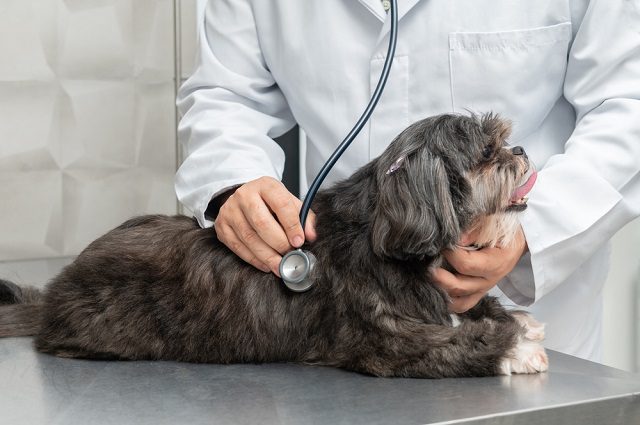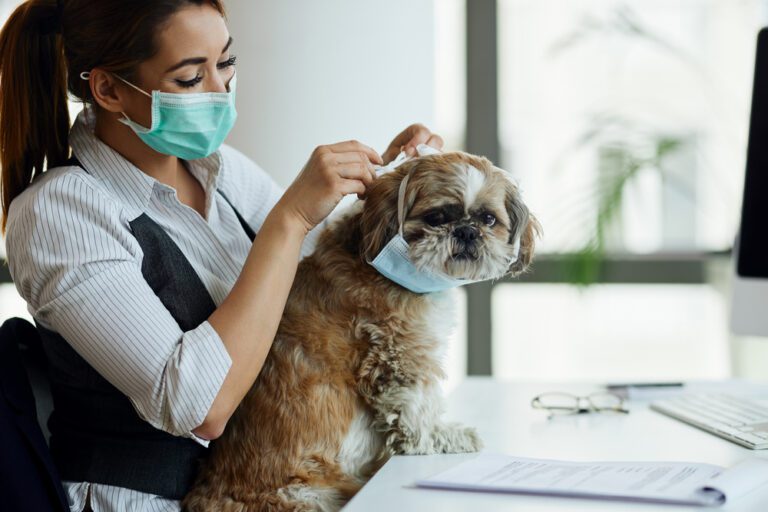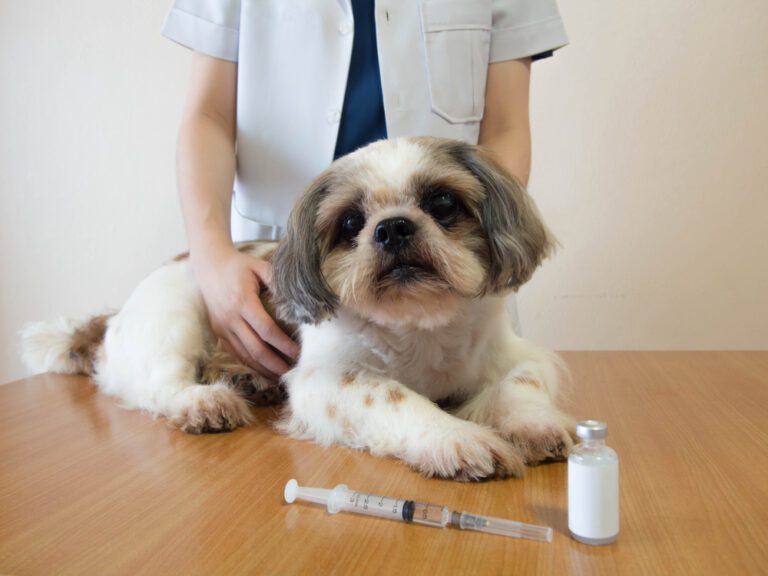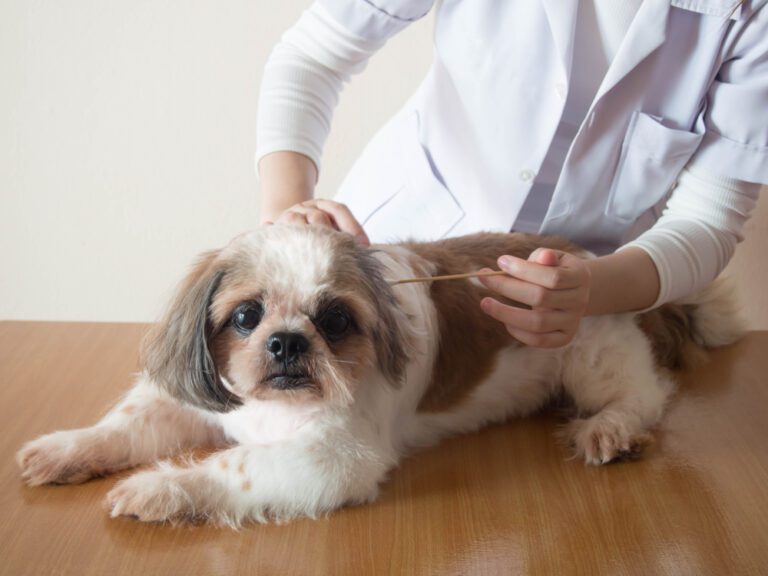Shih Tzu’s Health: A Comprehensive Guide to Anal Glands
Shih Tzu’s Health: A Comprehensive Guide to Anal Glands delves into the nitty gritty of your four-legged friend’s health care needs, breaking down the A-Z of canine anal glands, an often overlooked but essential aspect of their health.
This comprehensive guide is designed to take the mystery out of your Shih Tzu’s anal gland health while arming you with the knowledge to keep your furry companion happy and nimbly wagging that little tail. Instead of brushing off their bottom dragging or inexplicable chewing, learn how understanding these cues can contribute to their wellness. Get ready to embark on this insightful journey through a part of Shih Tzu’s health that is as impactful as it is under-discussed. Your Shih Tzu would thank you if they could!
The Importance of Anal Glands in Shih Tzus
Like all dogs, Shih Tzus have a pair of anal glands at the bottom of their rectum. These tiny, pea-sized sacs produce a potent, fishy-smelling secretion that dogs use to mark their territory. When your Shih Tzu poops, the pressure usually causes these glands to empty naturally.
They secrete a distinct, often foul-smelling substance that dogs use to identify one another, similar to a unique signature. In the wild, this scent marking serves as a crucial communication tool, but in a domestic setting, these glands serve a more basic function: aiding in excretion.
However, the importance of anal glands goes beyond just communication and defecation. They also play a vital role in the overall health of your Shih Tzu. When functioning correctly, these glands empty naturally during bowel movements. But, if they become impacted or infected, they can cause discomfort, pain, and even severe health issues for your pet.
Understanding the role and function of these glands is paramount for any Shih Tzu owner. Not only do they serve a significant role in your dog’s behavioral interactions, but also their overall well-being. A failure to identify and address anal gland issues can lead to severe health problems, including infections, impactions, and even abscesses that can rupture and cause immense pain to your fur baby.
This guide highlights these often overlooked organs and how their health impacts your Shih Tzu’s comfort and happiness. By understanding the importance of anal glands, you’ll be better equipped to notice any abnormalities and ensure that your furry friend remains in top-notch health.
Common Anal Gland issues in Shih Tzus
Impaction
One of the most common anal gland issues in Shih Tzus is impaction. This occurs when the glands fail to empty naturally, causing discomfort and potential health risks. In some cases, the glands can become infected, leading to an abscess that may rupture if not treated promptly. Overweight dogs or those with chronic loose stools or diarrhea are particularly susceptible to anal gland issues, as their stool may not exert the necessary pressure to express the glands naturally.
Anal Sac Disease
Another common issue is anal gland disease or anal sac disease. This condition encompasses a range of problems, including impactions, infections, and tumors. With their small size and predisposition to specific health conditions, Shih Tzus are more prone to anal gland disease than some other breeds.
Anal Gland Tumor
In rare cases, a Shih Tzu may develop an anal gland tumor. These malignant growths can cause similar symptoms to impactions and infections, making them difficult to diagnose without a veterinary examination. Although anal gland tumors are rare, they can be very aggressive and may require extensive treatment, including surgery and chemotherapy.
Anal Gland Infection
Another common issue is anal gland infection, which occurs when bacteria enter the gland, causing inflammation and pain. Left untreated, an infection can lead to an anal gland abscess, a painful pus pocket. An abscess rupture can result in a severe and potentially life-threatening infection.
Anal Gland Cancer
though rare, can also affect Shih Tzus. This form of cancer is aggressive and can spread quickly to other body parts. Early detection is essential for successful treatment, making regular vet check-ups vital.

Symptoms of Anal Gland Problems
Knowing what signs to look for is critical in identifying potential anal gland problems in your Shih Tzu. These symptoms can range from subtle behavioral changes to more overt signs of discomfort. One of the most common indications of anal gland issues is scooting or dragging the rear end on the ground. This behavior often responds to the discomfort or irritation caused by impacted or infected anal glands.
Other symptoms may include excessive licking or chewing at the rear end, a foul-smelling discharge from the anus, changes in bowel movements, or even difficulty sitting down. Some dogs may also show general discomfort or pain, such as whining or restlessness, particularly when sitting or defecating.
Not all dogs will exhibit these symptoms, and some may show less common signs. For instance, they might have a decreased appetite or exhibit signs of depression. Therefore, it’s crucial to know your Shih Tzu’s normal behavior and monitor any changes closely.
Remember, your Shih Tzu can’t tell you when they’re in pain, so it’s important to stay vigilant and be proactive in their healthcare. Regular check-ups and good hygiene practices can go a long way in preventing anal gland issues.
Diagnosis of Anal Gland Diseases
If you suspect your Shih Tzu has an anal gland issue, it’s essential to seek veterinary care promptly. Your vet will likely perform a physical examination, which may involve a rectal exam to assess the anal glands. They may also take a sample of the anal gland secretion to test for signs of infection or disease.
In some cases, additional diagnostic tests may be required. For instance, if a tumor is suspected, your vet may recommend an ultrasound or a biopsy to confirm the diagnosis and determine the best course of treatment. It’s important to remember that early detection is critical to successful treatment and recovery.
Be bold and ask your vet questions. The more you know about your Shih Tzu’s health, the better you’ll be able to help them. Understanding the diagnosis process can also help alleviate some of the stress and uncertainty associated with dealing with potential health issues.

Treatment Options for Anal Gland Issues
Treatment for anal gland issues in Shih Tzus depends mainly on the underlying cause and severity of the condition. For minor impactions, your vet may express the glands manually, providing immediate relief for your pet. In case of an infection, antibiotics are a probable prescription. In the case of an abscess, your vet may need to lance and drain it before starting a course of antibiotics.
Surgical intervention may be necessary in more severe cases, such as those involving tumors or recurrent issues. The surgery, known as an anal sacculectomy, involves the removal of the affected anal glands. While this procedure is generally safe, it has potential risks and complications, such as temporary or permanent fecal incontinence.
Of course, the best treatment is prevention, and there are several steps you can take to help reduce the risk of anal gland issues in your Shih Tzu. These include maintaining a healthy diet, ensuring regular exercise, and keeping up with routine veterinary check-ups.
Preventive Measures for Anal Gland Problems
Prevention is always better than cure, valid for anal gland problems in Shih Tzus. One of the most effective preventive measures is ensuring your pet has a healthy diet. A diet high in fiber can help promote regular, firm bowel movements, which can assist in the natural expression of the anal glands.
Regular exercise can also help keep your Shih Tzu’s digestive system running smoothly, aiding in natural gland expression. Regular grooming can help you spot abnormalities or changes in your dog’s rear-end area, allowing you to catch potential issues early.
Lastly, routine veterinary check-ups are essential. Your vet can quickly check your dog’s anal glands during a regular visit and express them if necessary. This can help prevent impaction and other related issues.
Home Care for Your Shih Tzu’s Anal Glands
While some aspects of anal gland care should be left to professionals, you can do a few things at home to help keep your Shih Tzu’s glands healthy. For example, keeping an eye on your pet’s stool consistency can give you a good indication of their anal gland health. If their stools are consistently soft or they frequently have diarrhea, this may suggest a problem with their diet or digestive health that could affect their anal glands.
You can also help by keeping your Shih Tzu’s rear area clean and free from matting, particularly if they have long hair. This can help prevent irritation and infection. If you notice your pet scooting or exhibiting other signs of anal gland discomfort, it’s important to seek veterinary advice rather than trying to express the glands yourself. Incorrect expression can cause pain and potentially lead to complications.
When to Consult a Vet
If you notice any changes in your Shih Tzu’s behavior, particularly those related to their rear-end area, it’s always a good idea to consult a vet. Symptoms such as scooting, excessive licking or chewing at the rear, unusual odors, changes in bowel movements, or signs of discomfort are all reasons to seek professional advice.
Remember, early detection is vital to successful treatment. If your Shih Tzu has recurrent anal gland issues, a more comprehensive health review may be necessary to identify any underlying issues contributing to the problem. Regular veterinary check-ups are also an excellent opportunity to discuss concerns or questions about your pet’s health.

Conclusion: A Comprehensive Guide to Anal Glands
Understanding your Shih Tzu’s anal gland health is critical to ensuring their overall well-being. While it may not be the most glamorous aspect of pet ownership, being informed about potential issues and knowing what signs to look for can make a significant difference in your pet’s comfort and happiness.
Remember, you are your Shih Tzu’s best advocate. By being proactive about their health and seeking veterinary care when necessary, you can help ensure they live a long, healthy, and happy life. Rest assured, your Shih Tzu would thank you if they could!







